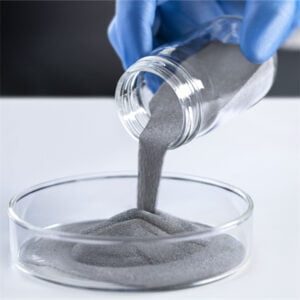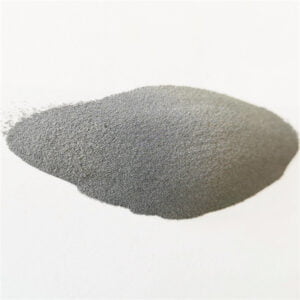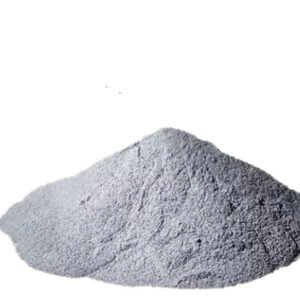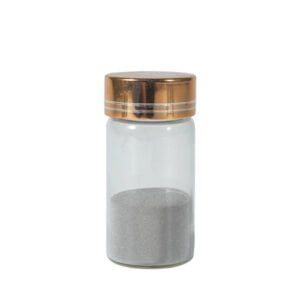Aluminum Powders
Table of Contents
Aluminum powders refer to aluminum metal in a powder form, composed of fine aluminum particles. They exhibit unique properties that make them suitable for applications in areas ranging from metallurgy and chemicals manufacturing to pyrotechnics and propulsion. Here is an overview of different types, production methods, properties, applications, and suppliers of aluminum powders.
Types of Aluminum Powders
There are two main types of aluminum powders:
| Types | Description |
|---|---|
| Spherical powder | Consists of spherical or rounded particles produced through atomization process |
| Irregular powder | Composed of non-spherical, flakey, irregularly shaped particles produced via milling or grinding |
Key Differences: Spherical powders have higher bulk density and flowability but cost more. Irregular powders have lower density and flow but are cheaper.
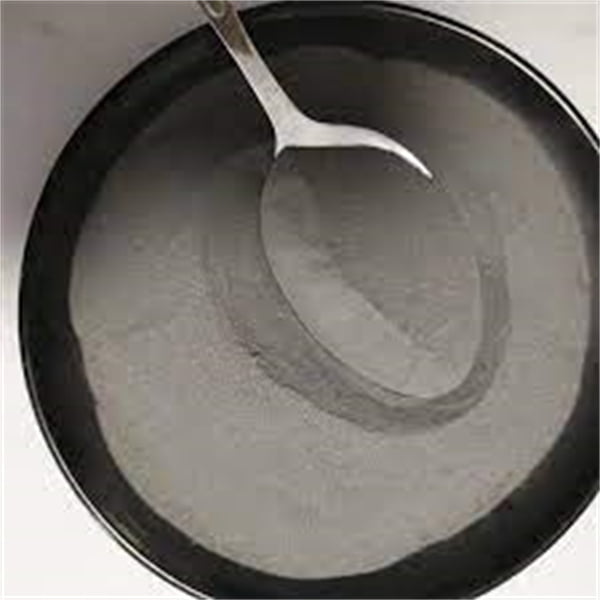
Composition and Properties
Aluminum powders contain high levels of aluminum metal along with small amounts of other elements:
| Element | Composition Range |
|---|---|
| Aluminum (Al) | ≥ 96% |
| Silicon (Si) | 0.5-1.5% |
| Iron (Fe) | 0.4-0.8% |
| Copper (Cu) | 0 – 0.15% |
Key properties:
- High chemical reactivity with oxidizing agents
- Low density – around 1.2 g/cm3
- High thermal and electrical conductivity
- Silver-gray color and appearance
Production Methods
There are three main industrial production routes:
- Atomization – Melted aluminum is broken into droplets that solidify into powder
- Milling – Mechanical grinding of aluminum metal into fine particles
- Electrolysis – Electrochemical reduction of alumina into fine aluminum
Atomization is the most common method, allowing high volumes of spherical powder. Milling gives irregular shapes for niche uses.
Aluminum Powder Grades and Sizes
Aluminum powders are available in various standard grades and sizes:
| Grade | Particle Size Range | Average Size |
|---|---|---|
| Coarse | 44 – 150 μm | 75 μm |
| Medium | 15 – 44 μm | 25 μm |
| Fine | 1 – 15 μm | 5 μm |
| Extra fine | < 1 μm | 0.5 μm |
Common industrial grade names include:
- Aluminum bronze powder
- Atomized aluminum powder
- Aluminum flake powder
Applications of Aluminum Powders
Key uses stem from aluminum’s reactive nature, low density, and conductive properties:
| Industry | Major Applications |
|---|---|
| Metals & Materials | Additive manufacturing powders, brake pads, sand castings |
| Chemicals | Pyrotechnics, explosives, solid rocket propellants |
| Automotive | Auto paint pigments, friction modifiers |
| Electronics | Conductive films, pastes, thermal management |
| Construction | Thermite welding agents, reactive powder concrete |
Other niches: 3D printing, diamonds tools, inks, and decorative coatings.
-
 Ti45Nb Powder for Additive Manufacturing
Ti45Nb Powder for Additive Manufacturing -
 TiNb Alloy Powder
TiNb Alloy Powder -
 TiNbZrSn Alloy Powder
TiNbZrSn Alloy Powder -
 Ti6Al4V Powder Titanium Based Metal Powder for Additive Manufacturing
Ti6Al4V Powder Titanium Based Metal Powder for Additive Manufacturing -
 CPTi Powder
CPTi Powder -
 TC18 Powder : Unlocking the Power of Titanium Carbide
TC18 Powder : Unlocking the Power of Titanium Carbide -
 TC11 Powder : A Comprehensive Guide
TC11 Powder : A Comprehensive Guide -
 TC4 ELI Powder
TC4 ELI Powder -
 Best Ti-6Al-4V powder (TC4 Powder)for additive manufacturing
Best Ti-6Al-4V powder (TC4 Powder)for additive manufacturing
Aluminum Powder Suppliers
Leading global suppliers include:
| Company | Location |
|---|---|
| Toyal America Inc | USA |
| UC RUnited StatesL | UK |
| Hokkaido Alpine Co Ltd | Japan |
| Noranda Aluminum | Canada |
| Henan Yuanyang Powder Technology | China |
Pricing is approximately $3-6 per kg for typical industrial-grade powder.
Comparison of Aluminum Powders
| Parameter | Spherical | Irregular |
|---|---|---|
| Flowability | Excellent | Poor |
| Packing density | High 0.7-1.2 g/cc | Low <0.5 g/cc |
| Cost | Higher | Lower |
| Reactivity | Moderate | High |
| Automation suitability | Ideal | Challenging |
Key Takeaways
- Spherical, atomized powders have better handling but irregular types maximize surface area and reactivity at a lower cost.
- Finer grades below 10 microns show stronger explosive potentials needing cautious handling.
- Aluminum powders drive innovation in materials technology through unique chemistry and metastability.
FAQs
What are the hazards of aluminum powders?
As reactive metals, aluminum powders can pose explosion hazards when handled incorrectly, especially at particle sizes under 5 microns. They require inert storage conditions and safety measures.
What is aluminum powder coating?
Aluminum powder coating refers to a specialized protective finish containing aluminum pigments. It is applied through electrostatic spraying and baked to form a decorative and corrosion-resistant coating.
What is the difference between aluminum flake and aluminum paste?
Aluminum flake contains leafing aluminum pigments with high aspect ratios used in coatings. Aluminum paste has the flake dispersed in a liquid carrier for easier application as a thick film paint or polish.
What is the shelf life of aluminum powders?
Properly stored aluminum powders have an approximate shelf life of up to 3 years before noticeable oxidation effects. Finer grades under 10 microns deteriorate faster and require moisture-free inert storage. Reactive specialty grades like pyro powders are the most sensitive.
Share On
MET3DP Technology Co., LTD is a leading provider of additive manufacturing solutions headquartered in Qingdao, China. Our company specializes in 3D printing equipment and high-performance metal powders for industrial applications.
Inquiry to get best price and customized Solution for your business!
Related Articles
About Met3DP
Recent Update
Our Product
CONTACT US
Any questions? Send us message now! We’ll serve your request with a whole team after receiving your message.

Metal Powders for 3D Printing and Additive Manufacturing
COMPANY
PRODUCT
cONTACT INFO
- Qingdao City, Shandong, China
- [email protected]
- [email protected]
- +86 19116340731









